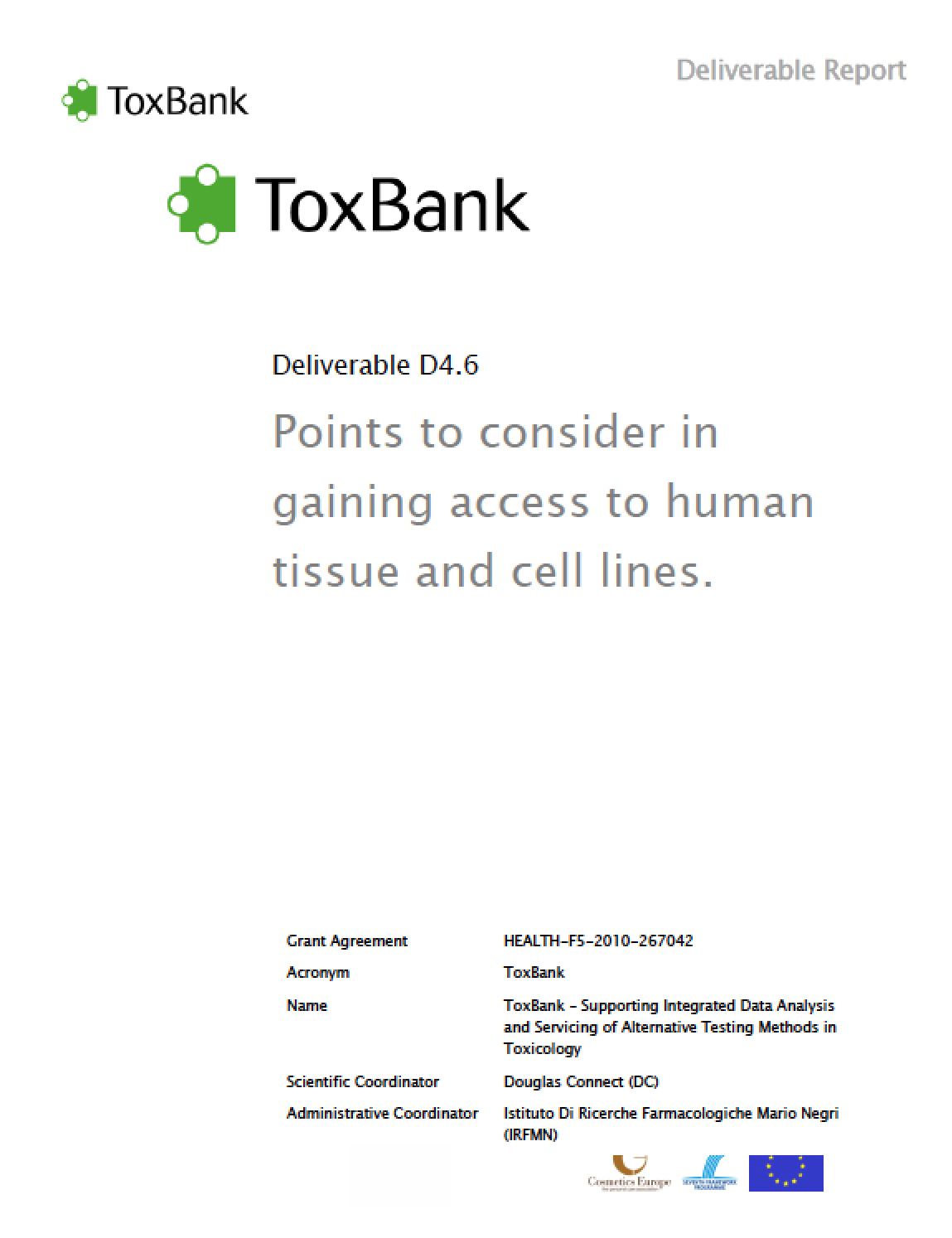 Background
Background
ToxBank develops Bioresources on biological materials and suppliers which can service the repeated-dose toxicology requirements with appropriate cells, tissues and cell lines for use in assays including specialised control materials. Stem cells play an increasingly important role in toxicity testing: in the functional differentiation goals to produce cells of toxicological relevance, e.g. to support development of hepatic cell assays for human liver toxicity assessment or to reproducibly generate organ-specific cells and tissues for organ simulating devices. Strategies to achieve differentiated organ-specific cells by sequential exposure of stem cells to a series of growth factors reflecting in vivo embryogenesis, requires attention to the availability and quality control of stable cell line samples. The ToxBank cell and tissue bank focuses on materials of human origin.
The ToxBank team reviews the general Biomaterials supply resources available and identifies those with special relevance to in vitro systemic toxicology and detailed user requirements. Based on information provided by suppliers and users, an evaluation and recruitment process produces the web-based registry of suppliers. An overall framework for managing the procurement and supply of Biomaterials is coordinated as a consensus with suppliers, user groups and other stakeholders for the provision of materials of acceptable quality. Key scientific direction for the establishment of generic criteria are being established through an expert scientific user group and questionnaires to the general user population who are engaged to identify a panel of key cell lines and tissues for toxicology work (e.g. number and composition of genotypes required for toxicity safety testing). This framework forms the basis for the operational system of the Biomaterial supplier network. Detailed scientific and safety quality criteria and protocols are required and established for each type of Biomaterial.
An early priority has been to define general quality and regulatory criteria for establishment, storage, testing and dissemination of Biomaterials. These are coordinated with the supplier network to establish consensus best practice which meets regulatory requirements for procurement and transfer of Biomaterials to resource centres. These criteria are used to formulate the suppliers’ charter for provision of Biomaterials.
Testing procedures are developed to include those of significance for safety of laboratory workers as well as quality of scientific investigation based on the Biomaterials. Procedures are developed for pre-supply scrutiny of recipients with respect to their local regulation and law and, where the tissue resource is finite, this may include an independent scientific evaluation to establish value of proposed uses of Biomaterials. Provision of information on shipping requirements and regulations is also a part of this activity to support users. Traceability is a critical element of process design whilst at the same time securing donor anonymity.
Having identified a supplier network, an evaluation process is being established to invite feedback from suppliers of tissues and primary cells, indicating how they meet the established quality, research and regulatory criteria.
